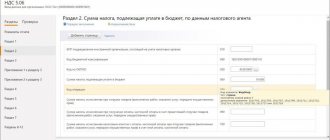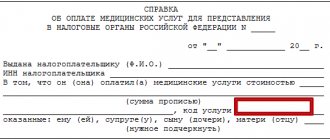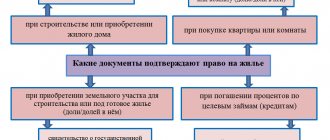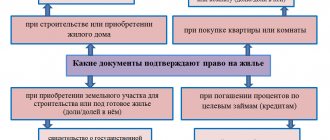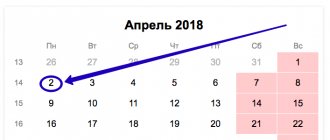Who must fulfill the obligation to pay tax?
The obligation to transfer personal income tax to the budget arises when there is an object of taxation.
In this case, the following categories of its payers can be distinguished:
- Individuals as independent payers of personal income tax on the amount of income received.
- Organizations and individual entrepreneurs - as a tax agent when withholding tax on income paid to employees.
If the organization has separate divisions, you must adhere to the procedure for paying personal income tax for branches, which is described in the material “If the personal income tax for a division went to the head office address, there will be no sanctions.”
What violations occur in the field of personal income tax
Liability for personal income tax arises in the following cases:
- If the taxpayer or tax agent has not paid the tax or paid it, but not in full (more about this in the material “The Ministry of Finance does not support the proposal to increase the fine for tax agents to 200% of the unpaid amounts” ).
- If the payer (agent) did not report on the forms established for personal income tax or made errors in them. Details are in the publications:
- “Fines for 6-NDFL: rules for imposition”;
- “A fine will be imposed for any errors in 2-NDFL.”
Should last year's personal income tax be withheld from the new year's income?
You must inform the Federal Tax Service about the impossibility of withholding personal income tax - submit a 2-NDFL certificate with sign “2” - no later than March 1 of the year following the one in which this personal income tax was calculated.
5 tbsp. 226 Tax Code of the Russian Federation. But in January - February, that is, from the beginning of the year before the message is submitted, an individual may have time to receive some kind of monetary income from you (for example, a salary). Is it necessary to withhold from them the balance of personal income tax calculated in 2016, but for some reason not withheld until the end of the year? Previously it was necessary, but now it’s not: don’t make the mistake of acting by inertia 11/15/2017 N.A. Martynyuk, tax expert
Like before
Of any money paid from the end of the reporting year until the submission of 2-NDFL certificates with sign “2” for it or before the deadline for their submission, last year’s tax should have been withheld and transferred to the budget. And in the 2-NDFL certificate for the reporting year, submitted with sign “1”, it was necessary to show such tax as withheld and paid. This followed from the explanations of the Ministry of Finance. But they were relevant only until 2021.
As it is now
Now it won't be possible to do that.
Firstly, the Tax Code norm, on which the Ministry of Finance relied in its explanations, has been formulated in a new way since 01/01/2016.
Now it says that the impossibility of withholding tax should be reported if the amount could not be withheld “during the tax period,” that is, a year.
It turns out that from the income paid to individuals in the new year, we no longer withhold personal income tax from last year’s income.
Secondly, if you do it as before, then the data on this tax in the calculation of tax amounts in Form 6-NDFL and in the income certificates of individuals in Form 2-NDFL for 2021 will not agree.
In Form 2-NDFL, the tax will be shown as withheld. And in form 6-NDFL - as calculated, but not withheld, since this form includes deductions made before the end of the reporting period.
It will not be possible to enter such a tax into Form 6-NDFL for 2021, since only taxes calculated in 2017 should be included in it. And the moment the tax is calculated coincides with the moment the income is received, that is, in our case, it falls on 2016.
The Federal Tax Service specialist agrees that the personal income tax calculated in 2021 does not need to be withheld from other income of the beginning of 2021, paid before the submission of the 2-NDFL certificate with sign “2”.
FROM AUTHENTIC SOURCES
KUDYAROVA Elena Nikolaevna
Advisor to the State Civil Service of the Russian Federation, 3rd class
“The tax agent has no obligation to additionally withhold personal income tax calculated from non-cash income received in 2021 (from financial benefits, income in kind), from cash income paid to an individual in 2021 before the deadline for submitting a message about the impossibility of withholding tax for the previous year (or before the message is submitted, if it is submitted earlier).
If a tax agent, before the end of the 2016 tax period, did not withhold from an individual the personal income tax calculated from his income due to the lack of such an opportunity, he is obliged to send both to the tax authority and to the individual himself a message about the impossibility of withholding personal income tax for the tax period of 2021 no later than March 1 2021.”
Obviously, this is true for personal income tax not only on non-cash income, but also on any other income paid to an individual in 2021, the tax on which you will not be able to withhold until 01/01/2017.
***
So, the Federal Tax Service must be notified of the amount of tax remaining unwithheld as of January 1 of the year following the year in which non-cash income was paid to the individual. That is, include the tax in the 2-NDFL certificate with attribute “2” and submit it no later than March 1 of the year following the one in which the personal income tax was not withheld.
An individual will have to pay this amount independently no later than December 1 on the basis of a tax notice sent to him by the inspectorate, that is, without filing a declaration.
Main book
Subscribe Post:
When does liability arise for non-payment of tax?
An employer who, acting as a tax agent, is obliged to withhold personal income tax on income paid to an employee may also be found guilty of non-payment of tax. At the same time, he can commit this evasion in different ways, on which the number of sanctions applicable in each specific situation depends. More information about such violations can be found in the article “What liability is provided for non-payment of personal income tax?”
We also advise you to pay attention to the article, which deals with whether liability arises if the payer paid the tax the next day after the deadline for payment - “Follow the deadline for paying personal income tax to the budget.”
There are situations when the tax agent failed to pay the tax, but the tax authority did not detect this offense. In this situation, the question may arise: within what time do controllers have the opportunity to bring the violator to justice? You will learn the answer from the article “The Federal Tax Service explained how to calculate the tax limitation period for personal income tax agents.”
The period specified in this article takes into account the method of receiving income - cash, non-cash, in kind or in the form of material benefits.
Some unscrupulous payers try to save on taxes to minimize their costs. Most often this is connected specifically with salary taxes, since this is the main large-scale expense item for most organizations. In order to hide the employee’s real income from controllers, the employer can resort to the payment of wages in envelopes, thereby reducing the tax base for calculating personal income tax and insurance contributions.
When an employer may face criminal liability for an envelope salary (non-payment of personal income tax on the amounts of paid salary income), find out from our material.
An employee who receives a salary in an envelope may also be liable for personal income tax (if he is aware that the employer does not withhold or pay tax deductions from his salary).
When receiving income from which personal income tax has not been withheld, the employee must independently fill out a declaration, submit it to the tax authority (by April 30 of the following year) and pay the tax. If he does not do this, the tax authority may collect personal income tax and penalties from him. For failure to submit a return, an employee may be subject to a fine of 5% of the unpaid tax amount for each full or partial month from the day on which it was due. Failure to pay personal income tax on a large scale may also result in criminal penalties.
Having committed an offense related to non-payment of personal income tax, the payer, in addition to the unpaid amount and fine, must transfer the amount of the penalty to the budget of the Russian Federation. However, its calculation has some peculiarities. In this case, it is necessary to determine:
- There are circumstances when a penalty cannot be assessed.
- Can the Federal Tax Service independently calculate the amount of penalties.
The emphasis on these issues is made in the material “What threatens a personal income tax agent who fails to withhold tax?”
Find out how to calculate penalties from the material “Penies have been increased, but not for everyone.”
It is very important, when paying the penalty accrued for non-payment of tax, not to make a mistake in the details, because the BCC, depending on the category of the payer and the type of income received, changes.
The details for paying penalties for personal income tax in 2019–2020 remained unchanged and are presented in the material “KBK for transferring penalties for personal income tax in 2019–2020.”
As for the fine, our material “What is the liability for non-payment of personal income tax?” will help you correctly calculate its amount.
When do you need to withhold tax?
With each payment of income to an employee, the tax agent has the obligation to withhold personal income tax and transfer it to the budget no later than the next day.
The withheld personal income tax must be transferred to the budget within the following terms (clauses 1, 2 of Article 223, clause 6 of Article 226 of the Tax Code of the Russian Federation):
- from wages, including the advance paid for the first half of the month - no later than the day following the day of payment of wages for the month (final payment);
- from salary upon dismissal - no later than the day following the day of payment of salary upon dismissal;
- from vacation and sick pay (including benefits for caring for a sick child) - no later than the last day of the month in which vacation or sick pay were paid (clause 6 of Article 226 of the Tax Code of the Russian Federation);
- any other income, including income in kind - no later than the day following the day of payment of any other income.
Is it possible to reduce the tax agent's guilt?
Legislation in the field of rights - civil, criminal, administrative, etc. - provides for such conditions that make it possible to reduce a person’s responsibility for an offense committed, while the Tax Code of the Russian Federation also provides for this possibility. How to justify reducing the employer’s guilt is described in the material “Financial difficulties of a tax agent - organizations can mitigate liability.”
Let's consider another situation in which the question may arise: will liability be mitigated or not?
The organization fulfills all its duties as a tax agent, submits 2-personal income tax information in a timely manner, pays tax regularly, and all previous tax audit results were positive. But at some point she missed the deadline for remitting the tax. Will such a good reputation help mitigate taxpayer liability? You will find the answer to this question here .
And about what factors make it possible to mitigate the payer’s liability, read the material “Art. 123 of the Tax Code of the Russian Federation: questions and answers.”
When there is no liability to pay personal income tax
There are cases in which at first glance it may seem that a violation has been committed, but in fact the taxpayer is not at fault. For example:
- The individual paid the tax before the obligation to transfer personal income tax to the budget occurred, i.e. he has not yet received income. You will find justification for the fact that in such circumstances there will be no offense in the material “If personal income tax is transferred ahead of schedule, a fine under Art. 123 of the Tax Code of the Russian Federation will not exist.”
- The tax agent transferred personal income tax to the budget, but has not yet paid the income to the employees. Read about this situation in the article “Is it legal to hold a tax agent accountable for early transfer of personal income tax to the budget?” .
- Transfer of tax for the branch to the tax authority at the place of registration of the parent organization. Often, having noticed such an error, the tax authority tries to attract the taxpayer. You will find arguments that will help you avoid liability, as well as decisions of arbitration practice and letters from regulatory authorities in the publications:
- “There is no fine for erroneous transfer of personal income tax at the location of the head office”;
- “Ministry of Finance of Russia: if personal income tax for a division is transferred to the location of the head office, there will be no fine.”
- The tax authority found the individual guilty of non-payment of tax when he made any major acquisition, believing that the reason for such a purchase was the receipt of hidden income. Thus, based on the expenses incurred by the individual, the amount of the fine is calculated. Why such actions of tax officials are illegal can be found out from the materials:
- “Taxpayers do not have the right to charge additional personal income tax based on the taxpayer’s expenses”;
- “The Federal Tax Service warned the inspectorates against additionally assessing personal income tax on taxpayers’ expenses.”
- “Personal income tax reporting during reorganization - what will change in 2018?”;
- “The tax on lottery winnings will be levied in a new way.”
To avoid being fined, taxpayers and personal income tax agents must constantly monitor changes in legislation on this issue. The materials on our website will help you with this:
The considered cases of prosecution for non-payment of personal income tax will allow you to navigate how to behave correctly in such circumstances in practice. “Fine (NDFL)” will always help you avoid getting into unpleasant situations or get out of them with minimal financial losses .
Actions of a tax agent in case of non-withholding of personal income tax
Most of the income paid by a company to employees during the year is subject to personal income tax (NDFL). This tax applies to salaries, bonuses, allowances, additional payments and other payments.
Tax is withheld directly from the amount of income the employee receives. In this case, income can be received both from sources in the Russian Federation and from sources outside its borders.
About the deadlines for paying personal income tax
It should be noted that different types of income have different deadlines for transferring personal income tax to the budget.
The withheld personal income tax must be transferred to the budget within the following terms (clauses 1, 2 of Article 223, clause 6 of Article 226 of the Tax Code of the Russian Federation):
- from wages, including the advance paid for the first half of the month - no later than the day following the day of payment of wages for the month (final payment);
- from salary upon dismissal - no later than the day following the day of payment of salary upon dismissal;
- from vacation pay and sick leave (including child care benefits) - no later than the last day of the month in which vacation pay or sick pay were paid;
- any other income, including income in kind - no later than the day following the day of payment of any other income.
When they couldn't withhold tax
In cases where you paid income to one of your employees, but were unable to withhold tax from this income and did not transfer it to the budget, you will have to report this to the inspectorate - until March 1.
They report to the Federal Tax Service in the prescribed form - in the form of a 2-NDFL certificate, in which the sign “2” is indicated. It indicates the amount of income from which tax was not withheld and the amount of tax not withheld.
The employee will have to pay the tax not withheld from him by the employer himself no later than December 1.
Please note: failure to submit documents and (or) other information provided for by the Tax Code by a tax agent within the prescribed period entails a fine of 200 rubles for each unsubmitted document (Clause 1 of Article 126 of the Tax Code of the Russian Federation).
How can they be punished for non-payment?
If you were supposed to withhold and transfer personal income tax to the budget, but did not withhold and (or) transfer it, then the tax authority will fine you. The fine is established by Part 1 of Article 123 of the Tax Code, which establishes the responsibility of the tax agent:
- for failure to withhold tax or incomplete withholding of tax;
- non-transfer of tax, i.e. tax was withheld but not transferred;
- late payment of tax, i.e. withheld, but did not transfer the tax on time);
- incomplete transfer of tax, i.e. They withheld, but did not transfer the entire amount of tax.
The fine is 20% of the amount of tax that you did not withhold and (or) transfer to the budget.
However, the tax agent can avoid liability under Part 1 of Art. 123 Tax Code of the Russian Federation. The condition is the simultaneous fulfillment of the following points:
- the tax calculation is submitted to the Federal Tax Service on time;
- in the tax calculation there are no facts of non-reflection or incomplete reflection of information and (or) errors leading to an underestimation of the amount of tax to be transferred to the budget;
- the tax agent independently transferred the amount of tax not transferred on time and the corresponding penalties until the moment when he became aware of the discovery of the fact of untimely transfer of tax or the appointment of an on-site audit.
Deductions from employee income
It is mandatory to make deductions according to executive documents. The Ministry of Finance of Russia reminds us of this in letter dated December 23, 2019 No. 03-04-06/100331.
Executive documents are:
- writs of execution issued by courts on the basis of their decisions;
- court orders;
- notarized agreements on payment of alimony;
- orders of the bailiff.
As a rule, the amount that must be withheld under enforcement documents cannot exceed 50% of the employee’s earnings.
However, there are cases of collection in which up to 70% of earnings can be withheld. The list of such cases is given in Part 3 of Article 99 of the Federal Law of October 2, 2007 No. 229-FZ “On Enforcement Proceedings”.
Thus, deductions in the amount of 70% of an employee’s earnings are possible:
- when collecting alimony for minor children;
- when compensating for damage caused to health;
- when compensating for damage to persons who suffered damage as a result of the death of the breadwinner;
- when compensating for damage caused by a crime.
Remember that the amount of deduction from wages and other income of the debtor is calculated from the amount remaining after withholding taxes.
